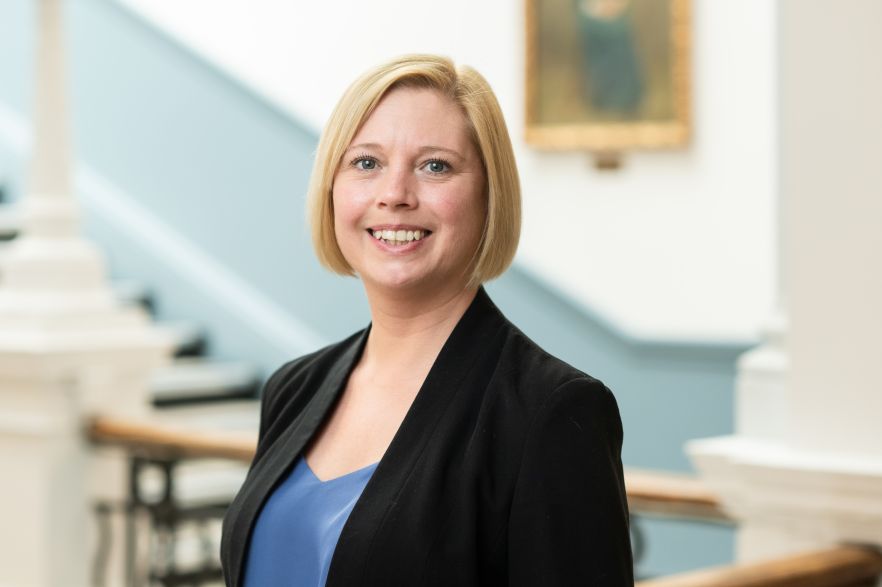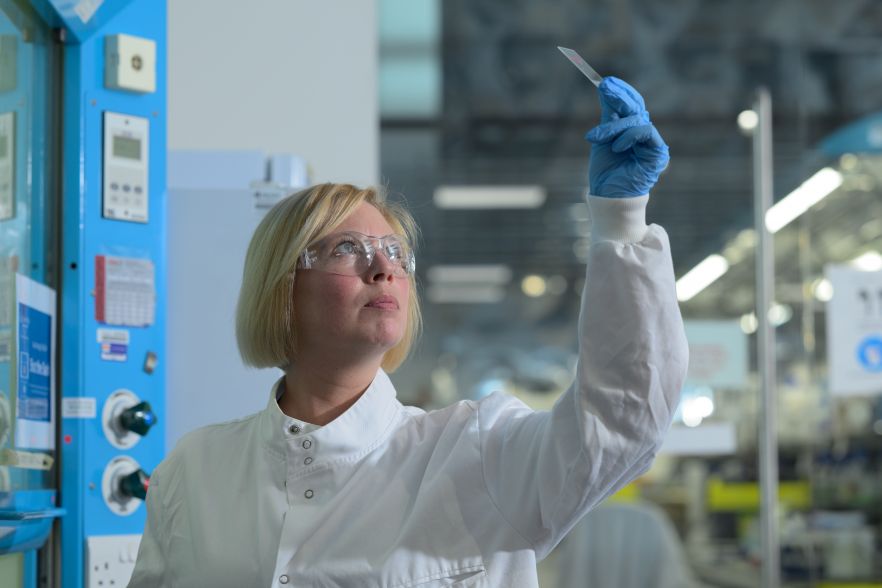Queen Mary Student to OBN Award Finalist: Dr Suzanne Eldridge

We are delighted to celebrate Dr Suzanne Eldridge, alum of the Biomedical Engineering MEng class of 2010, who has been shortlisted for Emerging Entrepreneur of the Year at the Organisation for Biotechnology and the BioIndustry Awards.
What inspired you to study Biomedical Engineering at Queen Mary?
"I first discovered medical engineering when I was visiting different universities to figure out what type of engineering I wanted to do. I did not even know the field existed before then, but I’ve always been fascinated by the intersection of engineering and medicine — how mechanical forces and materials science can be applied to understand and improve human health. Biomedical Engineering had the potential to make a tangible difference in peoples' lives by developing solutions for musculoskeletal diseases. Though I did not have a biology A-level, Queen Mary told me that if my grades were good enough, I could do medical engineering. I rejected all of my other offers after speaking with Queen Mary. I chose Queen Mary because of its strong reputation in both engineering and medical research, and because there was a real sense of community. I felt genuine openness and support from the university, and I am very grateful for the opportunities Queen Mary gave me. The access Queen Mary had to hospitals and world-class labs made it an exciting place to study."
How did your Biomedical Engineering degree prepare you for your professional career?
"The degree gave me a solid grounding in both engineering principles and biological sciences, which was essential for my later work in cartilage biology and regenerative medicine. The skills I gained at Queen Mary — especially in maths and physics — gave me a strong foundation for everything I’ve done since. Beyond the technical knowledge, it taught me how to think critically, work across disciplines, and approach problems creatively. Queen Mary also provided opportunities to connect with researchers, clinicians, and industry partners, which helped me to build the network that supported my career progression."
Were there any modules, projects, or lab experiences that sparked your interest in musculoskeletal health and regenerative medicine?
 "My interests changed over the years, but I remember really enjoying fluid dynamics in my first year, even though I struggled with it later on! The tissue engineering modules were always the most exciting for me because they felt new and full of potential. I had to really sit down and research those topics, and I loved that there were still so many unanswered questions in the field. I also vividly remember projects that involved tissue engineering and biomaterials. The hands-on lab sessions, where we explored how cells interact with scaffolds, were particularly inspiring – especially the 4th year MEng project with Professor Martin Knight & Professor Hazel Screen, who enabled me to experience what working with a start-up was really like. This experience made me realise the huge potential of regenerative medicine to restore function in damaged tissues, sparking my interest in musculoskeletal health and ultimately guiding me towards specialising in cartilage biology."
"My interests changed over the years, but I remember really enjoying fluid dynamics in my first year, even though I struggled with it later on! The tissue engineering modules were always the most exciting for me because they felt new and full of potential. I had to really sit down and research those topics, and I loved that there were still so many unanswered questions in the field. I also vividly remember projects that involved tissue engineering and biomaterials. The hands-on lab sessions, where we explored how cells interact with scaffolds, were particularly inspiring – especially the 4th year MEng project with Professor Martin Knight & Professor Hazel Screen, who enabled me to experience what working with a start-up was really like. This experience made me realise the huge potential of regenerative medicine to restore function in damaged tissues, sparking my interest in musculoskeletal health and ultimately guiding me towards specialising in cartilage biology."
What advice would you give to your younger self?
"I’d tell myself to get involved with as many different things as possible, to take every opportunity to explore areas outside my immediate comfort zone, and to meet lots of people. Don’t worry too much about having everything figured out from the start! Moving from a small town to a big university was a huge change, and it can feel overwhelming at first. However, being brave and stepping outside your comfort zone is so important. For me, working at the campus bookshop helped me meet people and feel more connected. There are so many opportunities at university — take advantage of them! Ultimately, research, and even career paths in general, are rarely linear. It’s okay to follow your interests and let them evolve as you gain new experiences."
Biomedical Engineering can open doors in research, healthcare, start-ups, and industry. What advice would you give to students still figuring out where they want to go?
"I’d say: go for it. Try new things. Don’t feel pressured to know your exact destination right away. Use your time at Queen Mary to try different things — internships, projects, lab work, even conversations with people in different sectors. Pay attention to what excites you the most, whether that’s research, clinical application, or innovation. Ultimately, the skills you gain from Biomedical Engineering are versatile, and they’ll give you a strong foundation wherever you decide to go. It’s not an easy degree, but the opportunities are fantastic. If you’re not sure what you want to do yet, that’s okay — this degree keeps your options open and prepares you for so many different careers.

